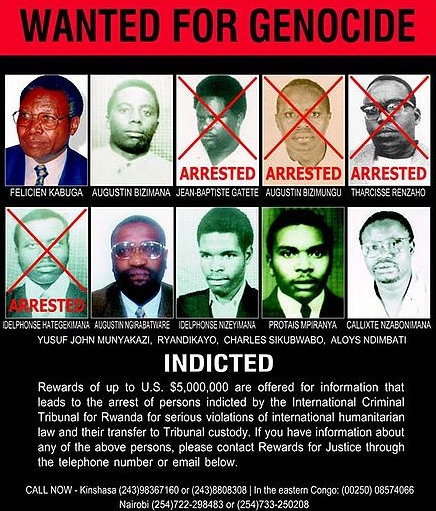
Arusha, February 13, 2012 (FH) -The prosecution has supported the application by two leading victims’ rights groups, who are asking the Appeals Chamber of the International Criminal Tribunal for Rwanda (ICTR) to hear them, saying certain sentences imposed by the trial court are “grossly inadequate”.
“The prosecutor supports the request by Ibuka and Survivors Fund for leave to submit a brief as amicus curiae (in the case of ex-Rwandan military leaders, including two generals) in connection with the prosecutor’s sentencing appeals,” reads part of response obtained by Hirondelle News Agency on Monday.
Rwandan survivors’ group Ibuka and British NGO Survivors’ Fund want to be heard in the appeals case for former army Chief of staff Augustin Bizimungu and that of the Gendarmerie Augustin Ndindiliyimana, who were sentenced by trial court on May 17, 2011.
“Notwithstanding the oral testimony of some victims who testified as witnesses, the prosecutor agrees that the victims’ collective voice, as such, was lacking during both the trial process and in the sentencing part of the judgment,” the prosecution submitted.
According to the response, victims were in a unique position to assist Chambers in the determination of appropriate sentences, particularly given the nature of crimes committed such as genocide and crimes against humanity, which resulted in mass killings and suffering of helpless Tutsi civilians in 1994
The Trial Chamber convicted the two generals of genocide, crimes against humanity and war crimes, whereas ex-Commander of the Reconnaissance Battalion, Major Francois-Xavier Nzuwonemeye and member of the unit, Captain Innocent Sagahutu, were found guilty of crime against humanity and war crimes.
Bizimungu was sentencend to 30 years in jail, while Ndindiliyimana was sentenced to time served and instantly released. Nzuwonemeye and Sagahutu received 20 years custodian punishment each.
In their application, Ibuka and Survivors’ Fund stated that the sentences imposed by the Trial Chamber do not further the primary sentencing goals of deterrence and retribution, tolerate impunity among those responsible for committing the gravest crimes, and demean the dignity of victims and survivors.
As representatives of Rwandan genocide victims, they seek only to have a voice so that the Tribunal could fashion sentences that better reflect its mission of preventing impunity and its commitment of doing justice to the victims’ memory.
The two groups said an Appeals Court decision which “drastically” reduced sentences on Colonel Theoneste Bagosora and Lieutenant Colonel Anatole Nsengiyumva from life imprisonment to 35 and 15 years, respectively, forced them to file the application in question.
Source: http://www.hirondellenews.com/content/view/15245/1208/

